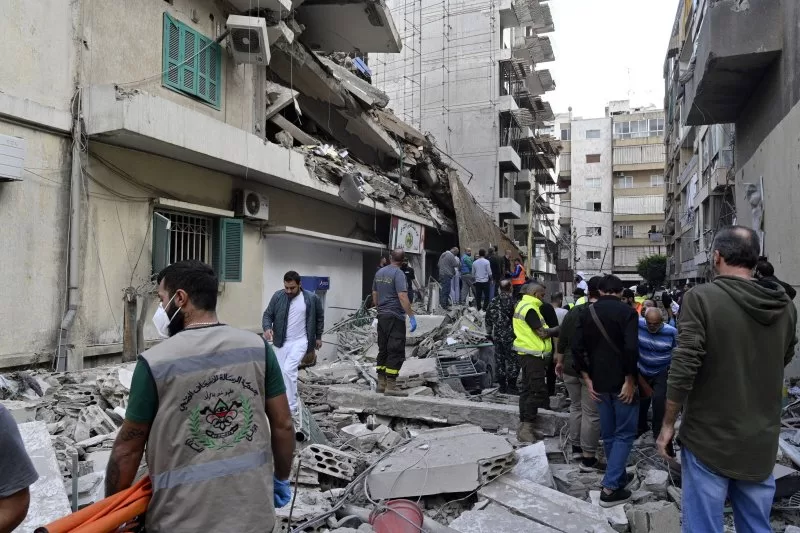1 of 2 | Mohammad Afif, the head of Hezbollah’s media relations was killed in an Israeli strike that targeted a building in a densely-populated neighborhood in Beirut.
Photo by Wael Hamzeh/EPA-EFE
BEIRUT, Lebanon, Nov. 17 (UPI) — The head of Hezbollah‘s media relations, Mohammad Afif, was killed Sunday in an Israeli strike that targeted a building in a densely-populated neighborhood in Beirut.
The strike hit a 5-story building housing the headquarters of Al Baath Party in Ras al Nabaa area while Afif was inside, said the head of the party in Lebanon, Ali Hijazi. There has been no immediate confirmation from Hezbollah.
“Mohammad Afif was inside the building for a special meeting,” Hijazi told Al Jadid (New TV) television station.
Mohammad Afif, who has been in his post since 2014, is among dozens of Hezbollah top officials and military commanders assassinated by Israel in similar airstrikes over the past months. They included Hezbollah Secretary-General Hassan Nasrallah, who was killed in a powerful strike on his bunker in Beirut’s southern suburbs on September 27.
The Lebanese Health Ministry said that according to an initial count, one person was killed, and three others were wounded.
Ambulances rushed to the scene while bulldozers started to remove the rubbles of the targeted building which was half destroyed.
The strike, which came without any Israeli alert to evacuate, pushed residents to flee the area.
It occurred after Israel carried out 10 powerful strikes on the Hezbollah-controlled southern suburbs of Beirut in the early morning hours on Sunday, flattening more buildings.
Israel has been giving short notices to the residents of the southern suburbs to evacuate before the strikes that are now taking place day and night. It refrained to do so on the strike targeting Afif.
Israel has stepped up its air strikes on the southern suburbs and eastern Lebanon for the past days to force Hezbollah accept its cease-fire conditions.
Lebanese officials are expected to respond to a U.S. written cease-fire proposal that was previously discussed with U.S. special envoy Amos Hochstein.
Cease-fire talks have been focusing on the complete implementation of U.N. Security Council Resolution 1701, which ended the 2006 war between Hezbollah and Israel, but has not been fully respected by both parties since.
The resolution calls for the disarmament of Hezbollah and for the Army and U.N. peacekeeping troops to be the only force in charge of security in the southern border area.
Israel has been trying to impose new conditions to secure more enforcement mechanisms and prevent Hezbollah’s rearming and funding. Lebanon rejected the Israeli conditions, saying they violate Lebanon’s sovereignty and insisted on the implementation of Resolution 1701 as is.
